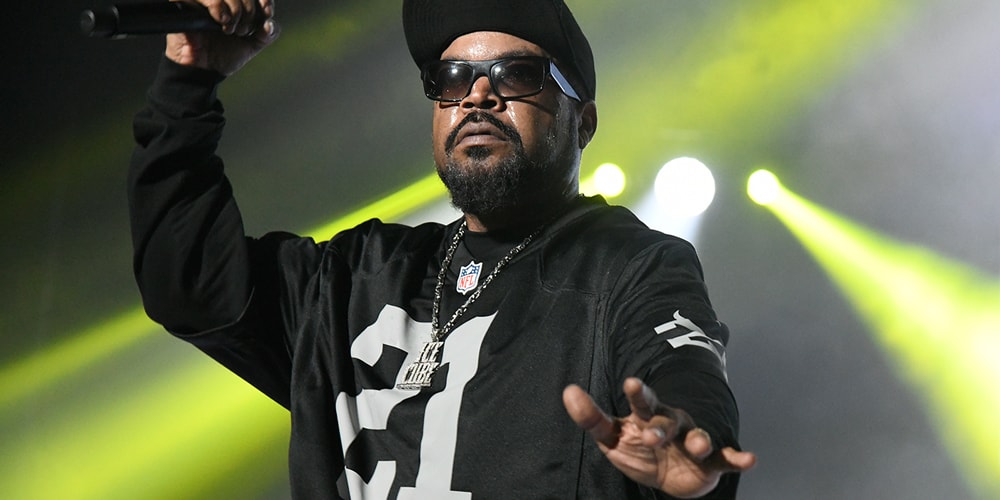How Much Do Airline Pilots Get Paid? The Interesting Math…
Ever wonder how much airline pilots get paid? In this post, I want to look at that in a bit more detail, including how all of this is calculated (either for those who are considering a career as an airline pilot, or for those who are just plain nosy).
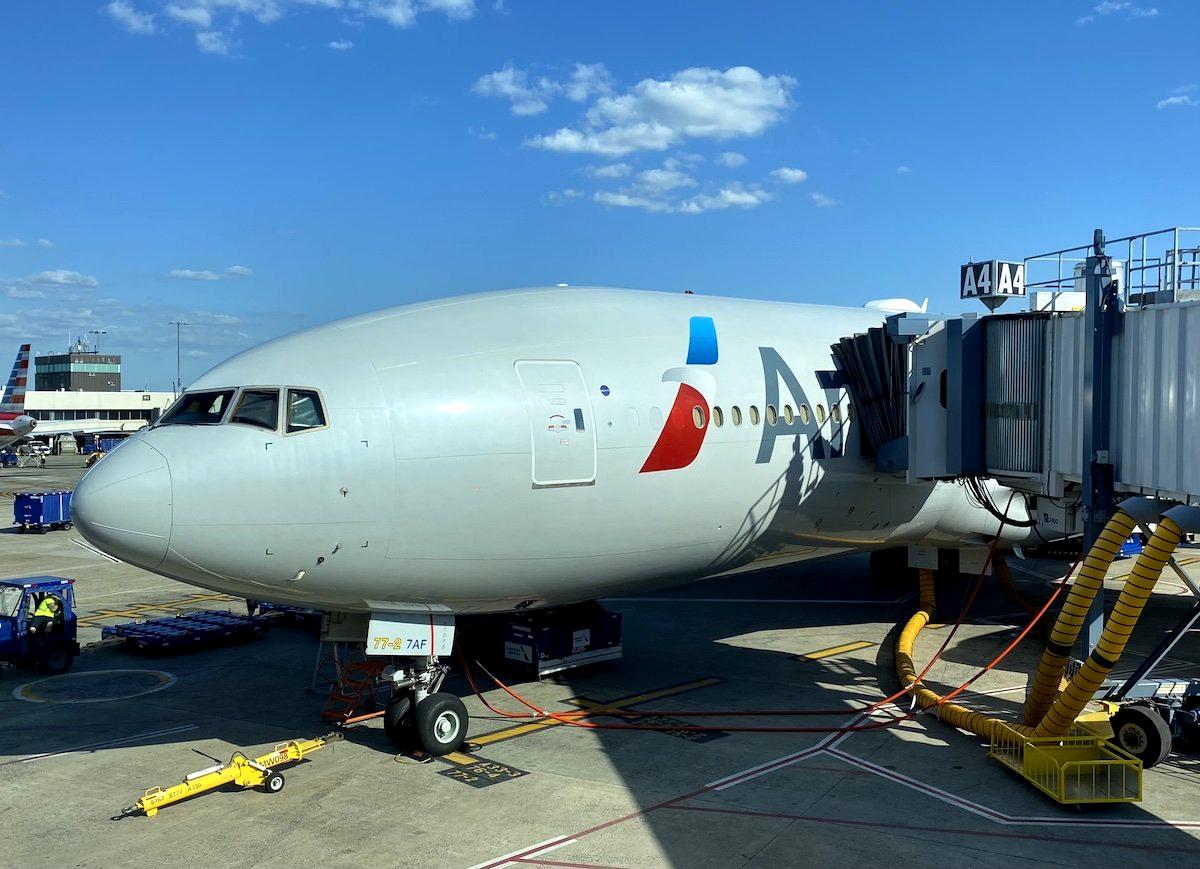
Ever wonder how much airline pilots get paid? In this post, I want to look at that in a bit more detail, including how all of this is calculated (either for those who are considering a career as an airline pilot, or for those who are just plain nosy).
As a kid I dreamed of becoming an airline pilot
I have huge respect for airline pilots. Back in the day, I wanted to be a pilot more than anything else in life, given how much I love flying. Until my early teens, I was absolutely convinced I wanted that to be my career.
Then one day to the next, a bit after 9/11, I decided I didn’t want to be a pilot anymore, at least not as my career. I loved flying every bit as much as the day before, and I feel like the act of actually flying planes never gets old, yet I figured it would be really demotivating. Why?
- At most major US airlines, all that matters is your seniority number, and I don’t think I’d like having a job where the most significant metric of my performance is the date I was hired
- It’s hard to switch between airlines without a huge pay decrease or quality of life sacrifice, so you’re very much at the mercy of whatever management team is running the airline at the time, and I wouldn’t sleep well knowing that
- Training to become a pilot is a huge investment (in terms of time and money), and it’s hard to know what the industry hiring landscape will be like when you’re sufficiently qualified to start applying for jobs; suffice it to say that the past few years were an amazing time to start looking for a pilot job, though the demand cycle is a bit past its peak at this point
- As much as I like travel, I’m not sure I’d want to commit to spending a large portion of my life away from home, with no flexibility to change that
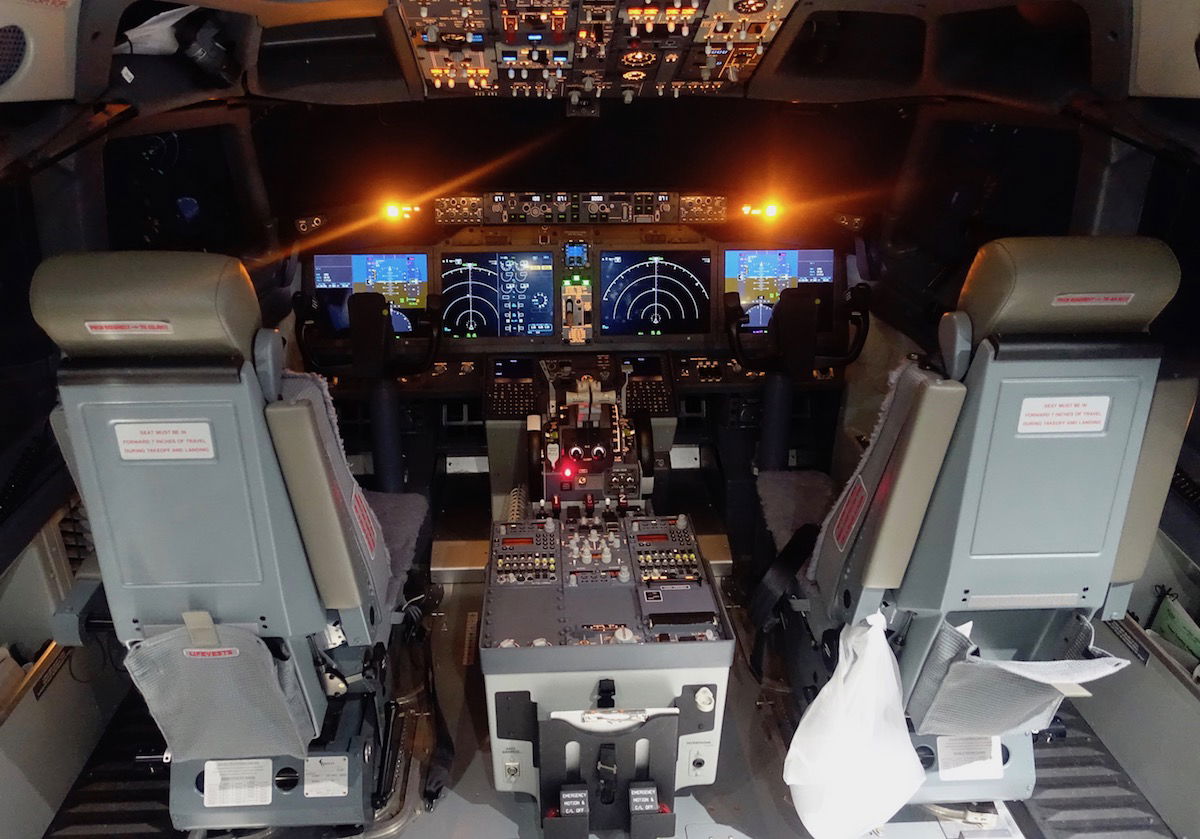
How much airline pilots earn, and how it’s calculated
If you’ve ever been curious how much airline pilots earn, there’s a fantastic resource that will tell you — airlinepilotcentral.com lists the pay scales for many airlines, including legacy US airlines, regional US airlines, cargo airlines, and many international airlines.
Generally speaking airlines pay pilots in one of two ways:
- On an hourly basis (most common at US airlines) — pilots are paid based on how many flight hours they rack up (when the door is closed), with some guaranteed minimum number of monthly hours, though this doesn’t include some additional pay if they pick up trips, for per diem while away from base, profit sharing checks, etc.
- On a monthly basis with some additional hourly pay (most common at foreign airlines) — pilots are paid a base monthly amount, and then get a smaller variable amount that reflects the hours they fly, how long they’re away from home, etc.
Regardless of the scale, pay typically varies based on whether you’re a captain or first officer, which aircraft type you’re flying, and how long you’ve been in that position (with the pay scale increasing every year, up to a certain cap).
In the United States, airline pilots can fly up to 1,000 hours per year, so that comes out to roughly 80 hours per month. Those hours will rack up very differently depending on the types of planes and routes you’re flying:
- A United pilot flying the San Francisco to Singapore route wouldn’t even be able to operate that trip three times in a month
- Meanwhile if you’re operating regional routes, hours rack up much more slowly, given all the time between flights, during boarding, etc.
For example, below is Delta’s hourly pilot pay scale.
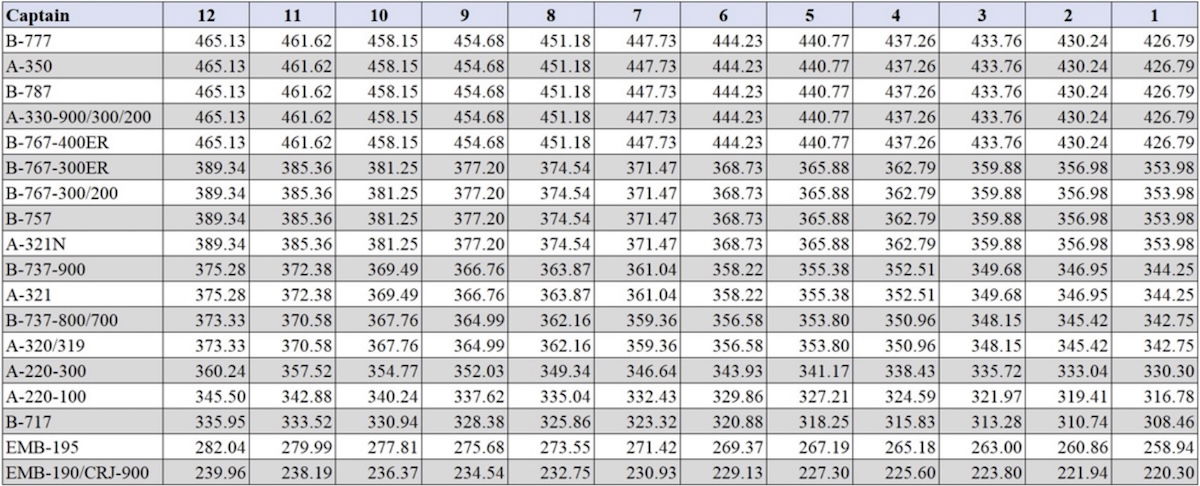
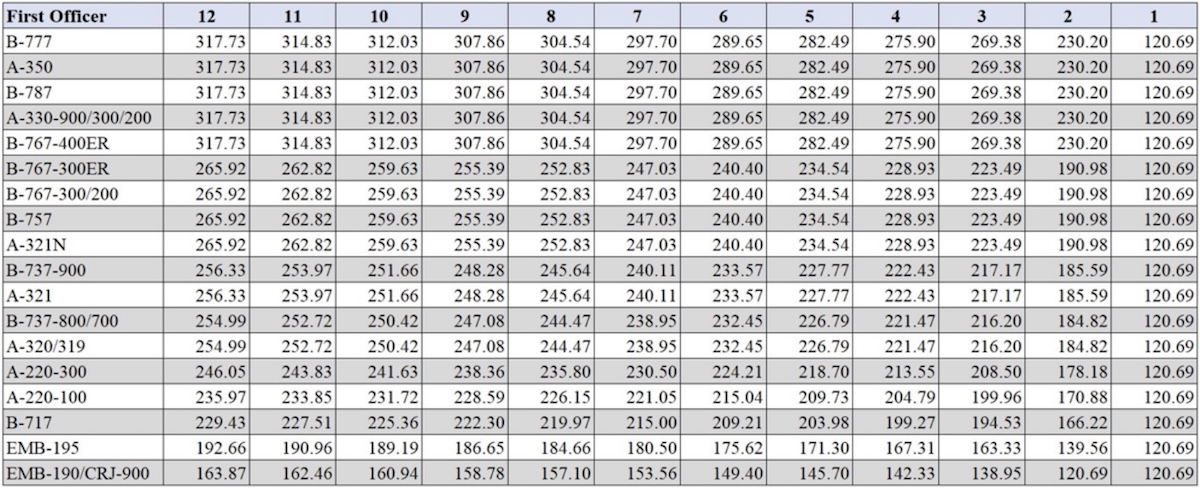
If you want to very roughly calculate annual take home pay, just add three zeroes to the end, since pilots can fly up to 1,000 hours per year. Note that in reality, pilots generally fly closer to 800-900 hours per year, but they also have some extra pay opportunities, ranging from per die pay, to bonus pay for picking up trips, to profit sharing. In other words, a first year Delta first officer could earn ~$120,000, while a senior wide body captain could earn ~$465,000.
Given Delta’s roughly 10% profit sharing for last year, I’d imagine that some very senior Delta captain made around $500K, if not a bit more (if they strategically picked up trips with extra pay).
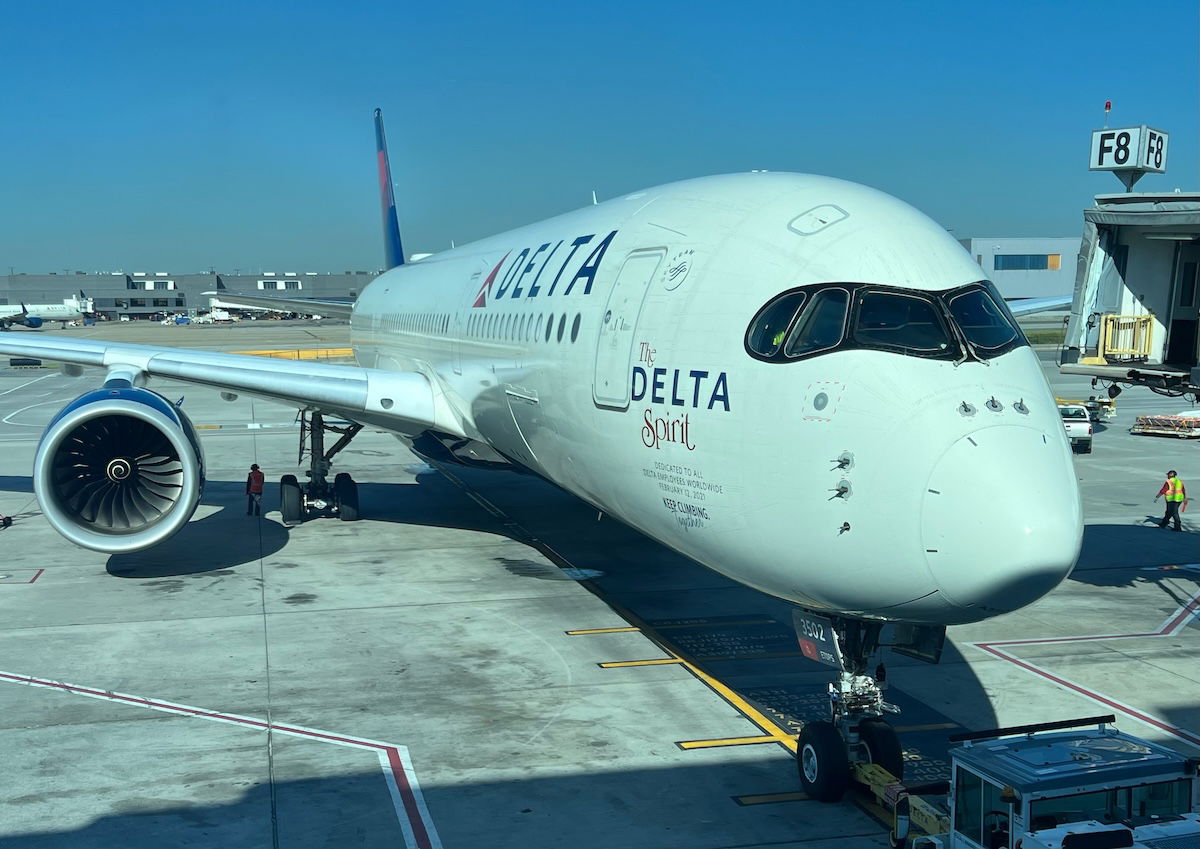
Note that for long haul flights with relief pilots, pilots get their hourly pay for the entirety of the flight, even when resting. So when we’re talking about ultra long haul flights with four pilots, hours rack up pretty quickly, even if pilots spend half the flight sleeping.
Regional pilots used to be paid horribly, but have seen huge pay increases in recent years, following the pilot shortage. For example, below is Endeavor Air’s hourly pilot pay scale (Endeavor is Delta’s wholly owned regional subsidiary).
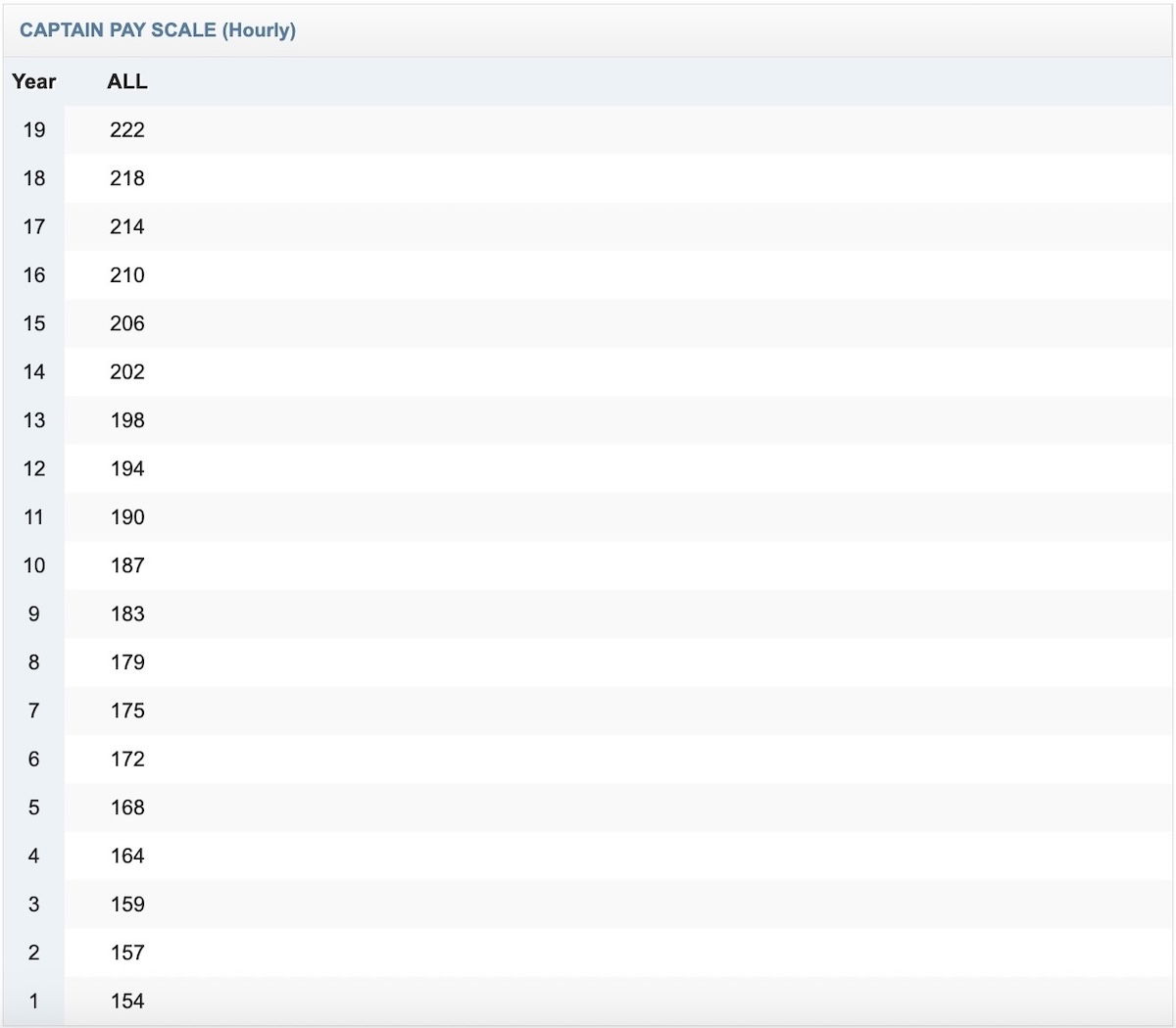

In other words, a first year Envoy Air first officer could be making ~$103,000, while a senior captain could be making ~$222,000. Let me emphasize that most pilots will go to a legacy airline before staying that long at a regional, and for most pilots, they’re not quite working 1,000 hours per year.
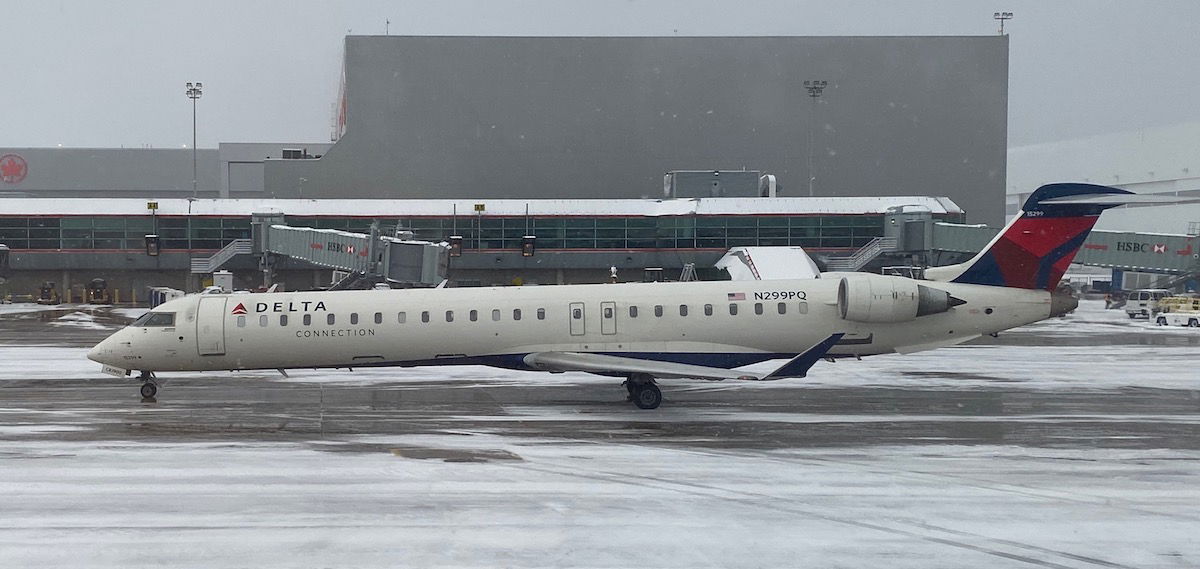
To take a look at a different kind of pay model, below is Emirates’ monthly pilot pay scale.
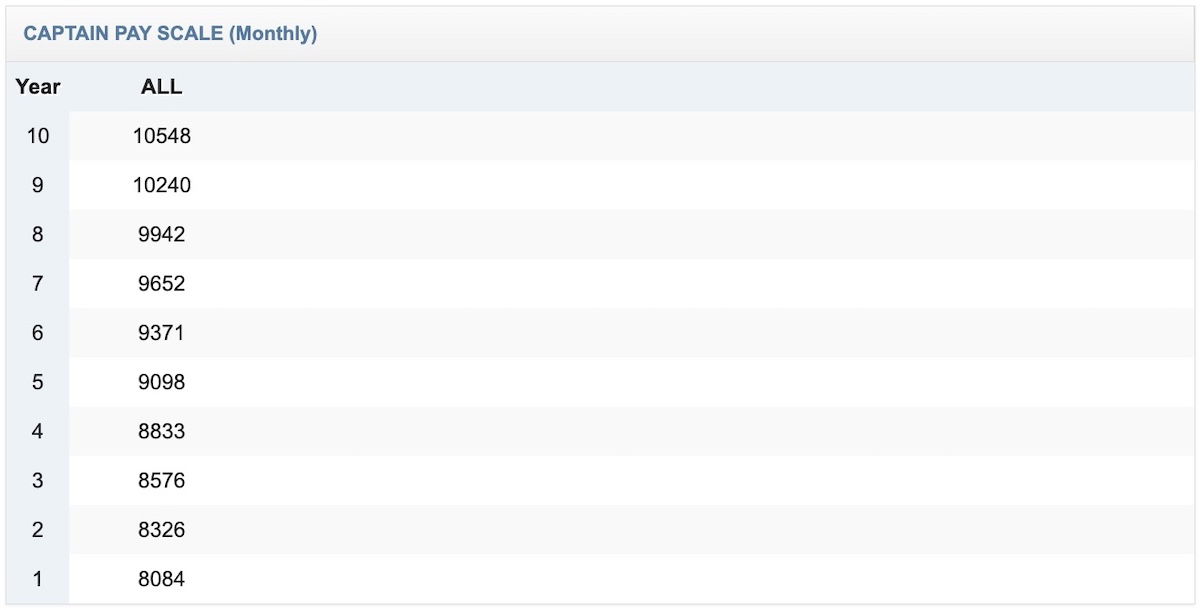
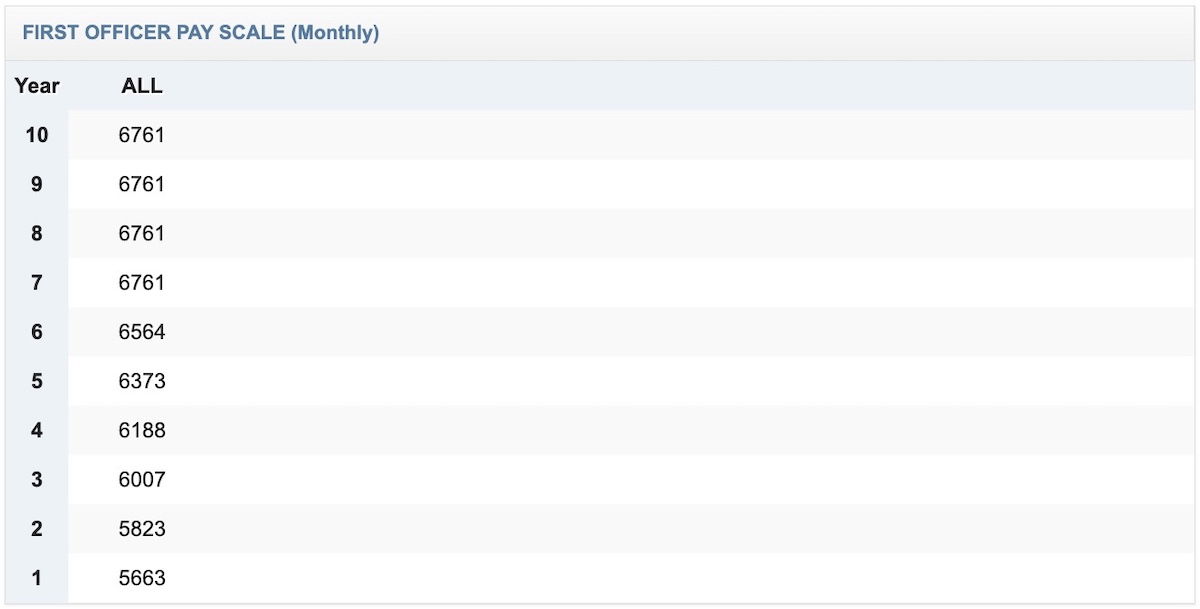
Pay is the same regardless of whether you fly the 777 or A380. As you can tell, the most senior captain would earn $126,576 per year. However, this doesn’t include:
- Flight time pay, where a captain earns another $16.26 per hour for every hour they’re flying, so figure that’s another ~$16,000 per year
- A per diem, which is based on the cost of three local meals a day at the destination you’re flying to (so for a ~24 hour trip to New York, that’s an extra $100)
- Living in the UAE is tax free, unless you’re a US citizen, in which case you’ll be taxed on part of your income (though the first ~$100,000 isn’t taxed, so that’s still significant savings)
- A very generous housing allowance
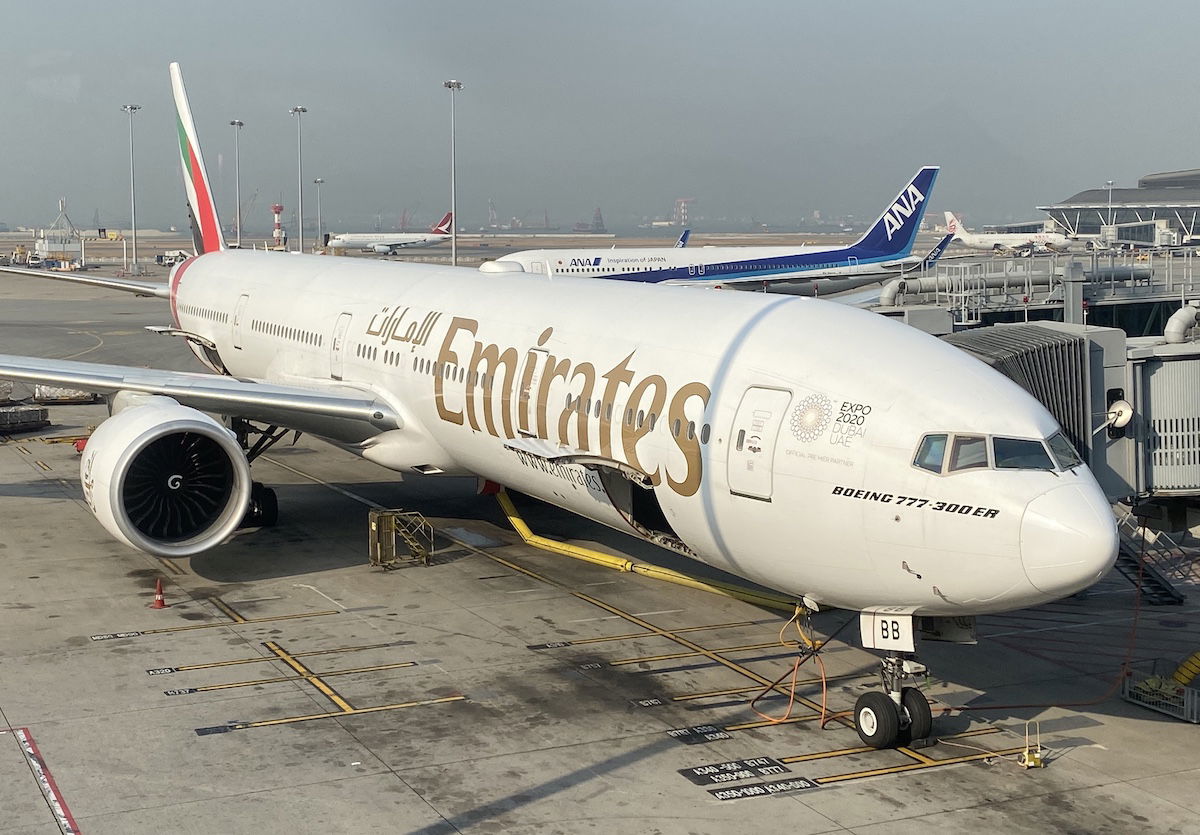
Let me of course note that I can’t personally vouch for the above numbers. It’s possible they’re not all totally up to date, but it does give you a general sense of what pilot pay is like, and the different models used to pay pilots.
The importance of airline pilot seniority
Based on the above, I’m sure some people wonder how it’s decided who gets to be captain vs. first officer, what plane you fly, etc. At least in the United States, the answer is seniority, which is the single most important metric that determines your “fate” at the airline.
Bidding based on seniority determines whether you’re captain or first officer, what type of plane you fly, and where you’re based. Then relative seniority compared to other people flying the same position on the same aircraft at the same base determines schedule preference.
The complexity of the above selection process means that there’s huge variance. For example, it’s possible that someone has been at a legacy airline for only two years, but is already captain. How? Well, they’re willing to move to an undesirable base (or commute there), and to have virtually no control over their schedule.
Then you might have some wide body first officers who have been at the airline for 20 years, but have no interest in getting a captain upgrade. Why? Well, it could be that they value the base they fly out, and they like being “senior” for their position, so that they have a lot of control over their schedule, can pick exactly which days they want off, can be home for as few days as possible, etc.
Heck, there are some husband and wife pilot duos where one is captain and one is first officer, and they intentionally plan it so that they’re very senior for their aircraft type and base, so that they can almost always travel together. That just gives you a sense of the possibilities.
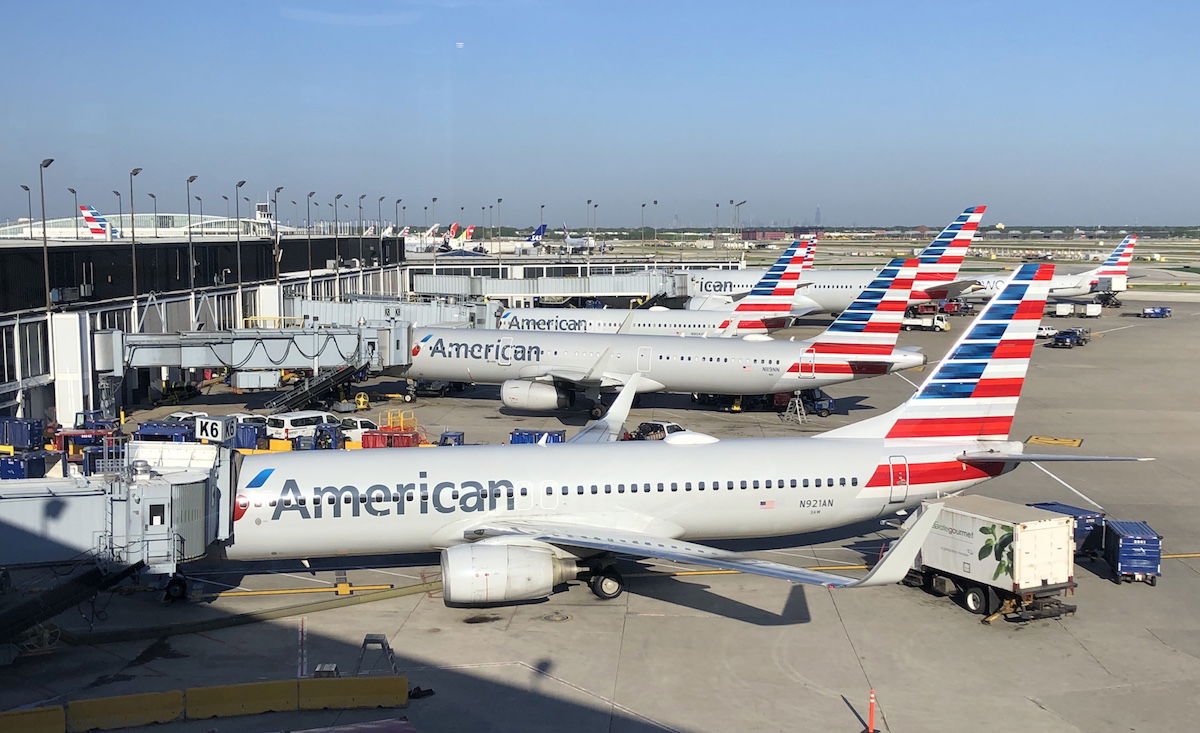
Bottom line
If you’ve ever been curious how much airline pilots make, the above is a very simplified rundown of how pay works and how much pilots earn. Pay comes down to whether you’re captain or first officer, the plane you’re flying, and how long you’ve been flying in that position.
Nowadays pilots are really well paid, and I’m especially happy to see that pay has increased considerably at regional airlines (several years back, regional pilots were hardly paid a livable wage).
On the high end, senior captains at US airlines may be raking in close to $500K per year. However, keep in mind that it took a very long time to get there, there have been lots of ups and downs, and they’ve spent a lot of time away from their families. Furthermore, most pilots don’t make nearly that much.
How does this compare to what you were expecting pilots earn?


































































-Baldur’s-Gate-3-The-Final-Patch---An-Animated-Short-00-03-43.png?width=1920&height=1920&fit=bounds&quality=70&format=jpg&auto=webp#)














































































































